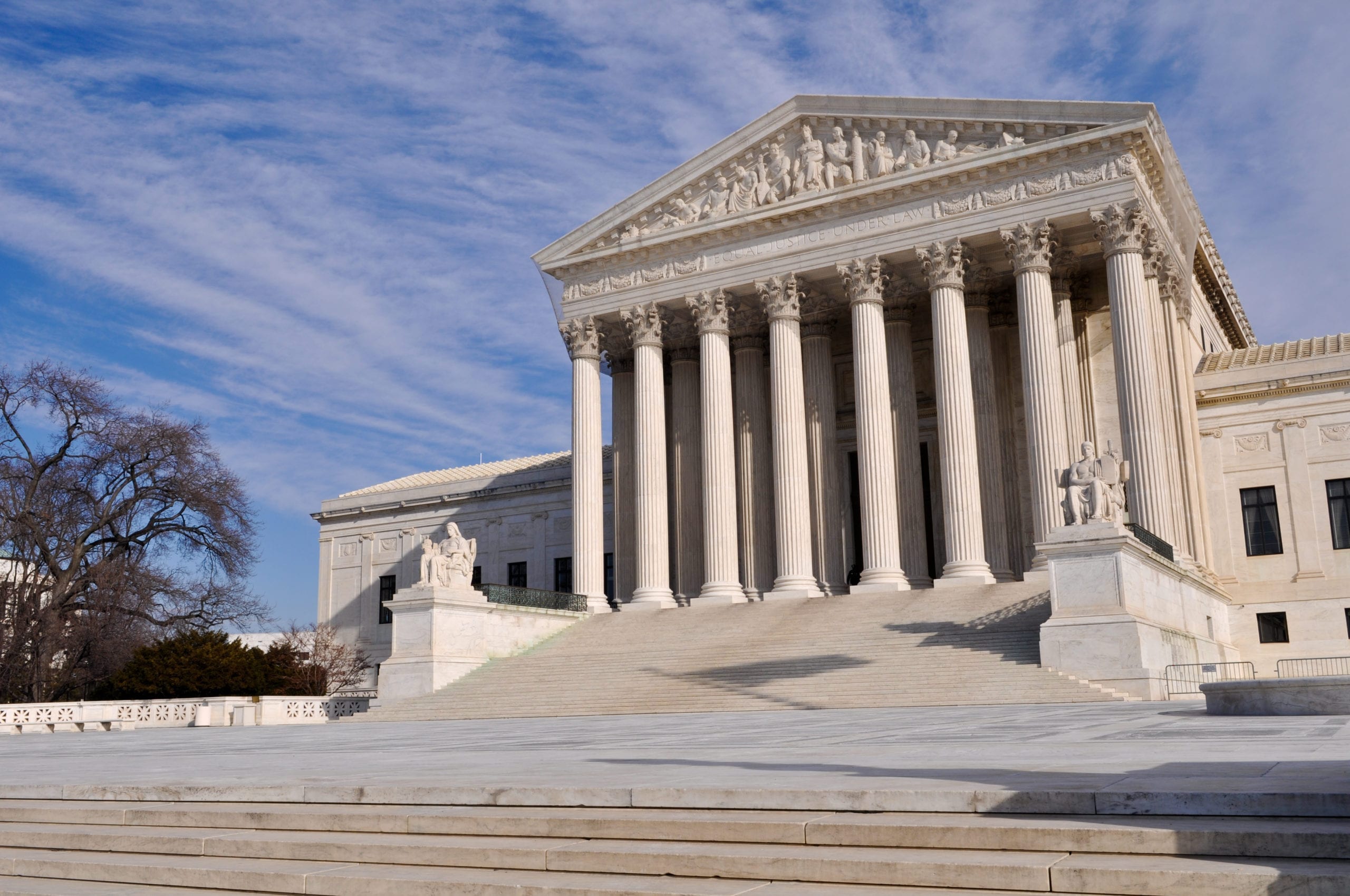The Federal Employee’s Group Life Insurance Act (“FEGLIA”) is a group life insurance program providing benefits for federal employees. It is the largest group life insurance program in the world, covering over 4 million federal employees and retirees. The Office of Personal Management (“OPM”) operates as the federal government’s human resources arm with respect to employee benefits. OPM has contracted with private life insurance companies to provide the life insurance benefit.
Employees enrolled in FEGLIA can select a beneficiary to receive the death benefit. In the absence of a valid beneficiary designation, FEGLIA provides an order of preference for the death benefit, starting with the surviving spouse. In the absence of a surviving spouse, the death benefit is paid to the children or other descendants of the FEGLIA participant.
Pursuant to federal statute 5 U.S.C. Section 8705(e), the statutory order of preference will not be followed if there is a person entitled to the death benefit pursuant to a court order or court-approved property settlement agreement. Instead, the court order will be followed, but only if OPM or its designee receives the court order prior to death.
In a February, 2020 decision from the Sixth Circuit Court of Appeals, the Court held that no federal cause of action existed to allow for the enforcement of a marital settlement agreement in federal court regarding FEGLIA death benefits.
The facts of Miller v. Bruenger, 949 F.3d 986 (6th Cir. 2020) are all too common. The decedent and his former spouse divorced. Pursuant to their property settlement agreement, the surviving spouse was to remain the beneficiary of the decedent’s life insurance policy. The property settlement agreement (“PSA”) was included in a court order, as required by FEGLIA. Unfortunately, no one sent the court order to OPM or the decedent’s employer, the Air Force. FEGLIA requires that the court order be sent to OPM or the employing agency prior to death.
The decedent’s only child was paid the death benefit. The former spouse demanded the death benefit and made a claim in state probate court. For reasons not clear, the claim made in probate court was dismissed by agreement of the parties. The daughter then filed an action for declaratory relief in federal court, seeking a declaration that she is the rightful owner of the death benefit.
The federal district court dismissed the action for lack of subject matter jurisdiction.
How Can Federal Jurisdiction be Obtained in a FEGLIA Dispute?
There are two possible sources of federal jurisdiction – diversity jurisdiction – where the parties are citizens of different states, or federal-question jurisdiction. Both litigants in the Miller case were citizens of the same state, leaving only the possibility of federal question jurisdiction.
As explained by the Miller court, “a claim arises under federal law, for purposes of federal-question jurisdiction, when the cause of action is (1) created by a federal statute or (2) presents a substantial question of federal law.” The former spouse was suing over death benefits governed by federal law, and in particular the portion of FEGLIA that directs who is to be paid the death benefit in the absence of a designated beneficiary. This certainly sounds like an issue of federal law. The Sixth Circuit said no.
Does FEGLIA Create an Actual Or Implied Cause of Action Under Federal Law?
No. “A federal statute can create a cause of action in one of two ways, either expressly in the text of the statute, or as a direct implication of that text. Express actions exist when the statute “in so many words” allows an aggrieved party to bring suit in federal court.”
According to the Court, FEGLIA does not contain an express cause of action for one private party to sue another private party over death benefits governed by FEGLIA, only suits against the federal government are expressly authorized.
The Court also found that FEGLIA did not create an implied cause of action for one private litigant to sue another (some citations omitted):
Where an implied cause of action arises, it must be directly derived from Congress’s intent. In other words, while the action is implied (rather than express), Congress’s intent to imply such a claim must be expressed in “clear and unambiguous terms.”
That clear and unambiguous intent is absent here. We know, from FEGLIA’s express terms, that Congress considered jurisdictional questions by authorizing suits against the United States to be brought in federal district court. But Congress showed no intent—express or implied—to create in FEGLIA a federal claim for actions between private parties. See Ziglar, 137 S. Ct. at 1856 (“Congress will be explicit if it intends to create a private cause of action.”); see also First Am. Title Co. v. Devaugh, 480 F.3d 438, 453 (6th Cir. 2007) (applying “expressio unius est exclusio alterius, ‘the mention of one thing implies the exclusion of another'” in statutory interpretation (quoting Millsaps v. Thompson, 259 F.3d 535, 546 (6th Cir. 2001))).
Does a Private Lawsuit Over FEGLIA Benefits Present a Substantial Question of Federal Law?
No. As explained by the Court (citations omitted):
To establish federal jurisdiction on this basis, the underlying cause of action must (1) “necessarily raise[] a stated federal issue” that is (2) “disputed and substantial” and (3) hearable by the federal courts without disturbing the established federal-state court balance.
[The former spouse’s] anticipated claim does not necessarily raise a federal issue. [The daughter], anticipating [the spouse’s] state court claim, sought a declaration in federal court that she is the rightful recipient of the life insurance proceeds. It follows that any rival claim brought by [her] to those same proceeds would rely on the PSA and accompanying state court order, which [she] says assigned the proceeds to her.
That claim would not arise under federal law. At heart, it is an action to enforce the PSA, not FEGLIA. The PSA’s impact on the life insurance proceeds, moreover, will likely turn on a question of state law. Indeed, there is evidence to that effect. As the district court noted, [the former spouse] previously filed a claim in probate court against the * * * estate that mentioned no federal law. And even if FEGLIA (or another federal issue) would arise in litigation pursued by [her], federal jurisdiction is not established simply because a state court may have to entertain a federal issue. State courts are well-equipped to do so, when asked.
To the extent FEGLIA had any bearing on Donna’s hypothetical state-court lawsuit, it would likely be as a defense to [the former spouse’s] claim asserted by [the daughter]. That is, [the daughter] would likely emphasize that the state court order was never filed with the federal government. Under FEGLIA, for a state court order to supersede the statutory order of precedence, the state court order must be received by the federal government. 5 U.S.C. § 8705(e)(2). Yet however powerful that FEGLIA-based defense to [her] claim might be, defenses invoking federal law do not transform a state-law claim into a federal case. This is true even when the parties agree that the anticipated federal defense is the only disputed issue. As they inform at most a potential defense to [the daughter’s] claim, arguments regarding FEGLIA are not a part of her anticipated well-pleaded complaint.
Even if [the daughter’s] anticipated claim necessarily raised a question of federal law, it would not be a substantial and disputed one. To raise a substantial question of federal law, the federal issue must not only be contested but also substantial, “indicating a serious federal interest in claiming the advantages thought to be inherent in a federal forum.” In assessing whether a federal question of law is substantial, we consider whether a federal agency is a party to the action, whether the federal issue is important and dispositive, and how broad the binding effect of the decision will be. We consider these factors, “along with any other[s]” that are relevant, “in aggregate.”
In weighing the federal interest in hearing the dispute, the Court reasoned (citations omitted):
Today’s case lacks many of these same federal indicia. There is no federal agency present in this dispute. To the extent the case raises a federal issue regarding application of FEGLIA, it seemingly does not do so for a broad range of parties; rather, the inquiry would be “fact-bound and situation-specific.” And the United States’s interest in how a former employee’s life insurance proceeds are distributed would not be described as significant, when measured against the weighty federal issues the government faces on a regular basis.
Even assuming [the daughter’s] anticipated claim raised a disputed, substantial federal issue, the federal courts nonetheless could not hear it without upsetting the established federal-state court balance. With an eye to federalism and comity concerns, federal courts are understandably reluctant to insert themselves into areas that are traditionally the province of the state courts. Domestic relations issues are quintessential examples. See Hillman, 569 U.S. at 490 (“The regulation of domestic relations is traditionally the domain of state law.”).
Learn more about how to litigate an inheritance dispute in federal court.








